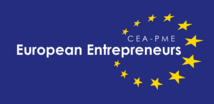Lawyers need to have courageous conversations and say ‘no’ more often, to tackle the widespread culture of overwork that is leading to burnout around the world.
That was the message from the latest Eurojuris webinar, which featured Nick Bloy of WELLBEING Republic, who coaches people to operate at their best, by harnessing their optimum mental state.
As well as challenging the thinking of the 30 members who joined the live webinar on Reclaiming Work-Life Balance, a recording is available for all members to watch until the 15th May.
Nick draws on neuroscience and research findings to demonstrate how overwork contributes to a vicious cycle and why so many people find it hard to set boundaries. He advocates self-compassion and says that ensuring your own wellbeing lies at the heart of tackling the problem.
Using research from the International Bar Association, LawCare’s Life in the Law project, and the national taskforce on lawyer wellbeing in the USA, Nick highlighted the impact on resilience of a poor work/life balance. He looked at what may get in the way of saying no and how to have courageous conversations to create healthy expectations, and to build the optimum conditions for sustainable peak performance.
The latest figures from the USA legal sector show sustained levels of mental ill health, with jobs having a significant impact on ability to thrive; and the past 12 months of the pandemic has affected work/life balance even further. “Some people actually miss their commute where they can decompress,” said Nick.
He highlighted how research shows that home working has seen up to three hours added to the working day, and how less support or greater isolation from colleagues is creating additional stress. This was endorsed by one of the event’s breakout groups, who commented: “Something that resonated is how it has become too easy to blur the lines between work and home.”
Burnout was identified as an occupational phenomenon by the World Health Organisation a few years ago, and is defined as chronic workplace stress which has not been adequately managed. Nick explained how it results in energy depletion, so we become less engaged or experience less enjoyment, and how this leads to reduced professional efficiency.
“One effect of stress over long periods is increased inflammation in the body and in the brain,” he said. “This affects our ability to think and feel and downgrades chemicals such as dopamine, which can result in reduced motivation. We are more easily overwhelmed or frustrated and become a less effective version of ourselves.”
A qualified lawyer himself, and HR Business Partner by background, Nick has an in-depth knowledge of psychology, neuroscience, physiology, sports science and wellbeing. He works across industry sectors, including professional services, as a coach, keynote speaker and strategist.
Feedback from the event showed that all the participants found the topic of "work-life-balance" very or extremely relevant, with comments that included:
“My takeaway was having the confidence to say no, or to at least question if something is really urgent”
“I went for a walk straight after the session. Seeing how you can become less productive through overwork made me realise the importance of my own work/life balance”
“Understanding what is happening inside the brain was really valuable”
“Great speaker and the structure worked well. The value in this seminar for me was not only the content, but also the chance to chat with colleagues I haven't seen for a while.”
“Thank you! It was a really necessary webinar and exactly at the right time for me. ”


